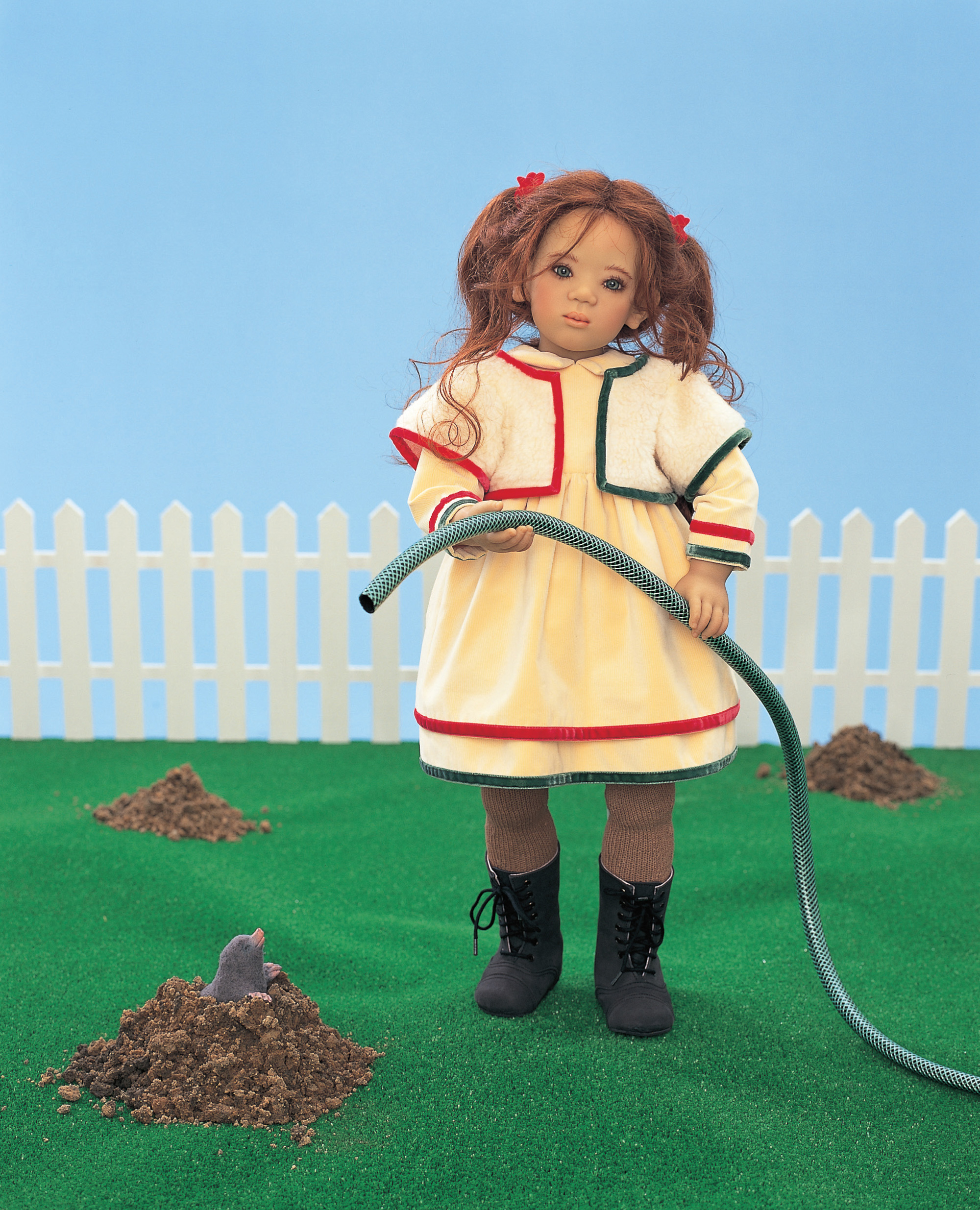The Rough Guide: Favell Lee Mortimer’s The Countries of Europe Described
A xenophobic travelogue for Victorian tots
Todd Pruzan

Great Britain has boasted countless offbeat children’s authors over the centuries—Lewis Carroll, Edward Lear and C.S. Lewis come to mind—but today, few scholars know much about the one who may have been the very weirdest of all. In the mid-nineteenth century, Favell Lee Mortimer published 16 bestselling educational, evangelical books, eventually selling millions of copies, and terrifying Protestant children in 38 languages. Her innovative second-person voice evoked the Sunday lecture of a severely absolutist teacher, and her mission—teaching Protestant children about their world, and spreading Jesus Christ’s word—was offset by a worldview that today seems intolerant, and even cruel.
“How kind of God it was to give you a body! I hope that your body will not get hurt,” Mortimer admonished in the opening chapter of 1833’s The Peep of Day, her first and best-known book. “Will your bones break?—Yes, they would, if you were to fall down from a high place, or if a cart were to go over them.… If a great box were to fall on your head, your head would be crushed. If you were to fall out of the window, your neck would be broken.” Such passages led Mortimer’s own grandniece, Rosalind Constable, to recall The Peep of Day in The New Yorker in 1950 as “one of the most outspokenly sadistic children’s books ever written.”
The Peep of Day and its 1837 sequel, Line Upon Line, are the only Mortimer titles widely available today. The text of Peep’s 2000 edition, published by the Scottish house Christian Focus Publications, is still true to Mortimer’s hair-raising original. “I’ve had a little chuckle myself at one or two things,” notes Catherine MacKenzie, children’s editor at Christian Focus, in an email. “But it was written for children from a different century.… Her material is Biblically accurate.”
The same cannot be said for three guidebooks Mortimer published later in her career, blasting the foolish customs and filthy habits of virtually every culture in the world in 1849’s The Countries of Europe Described, 1852’s Far Off: Asia and Australia Described, and 1854’s Far Off: Africa and America Described. Her “you-are-there” format belies the evidence that she never set foot beyond England’s green hills, but she offset her lack of reporting skills with an unassailable authority about Christ’s love—even for “the poor Negro slave,” “the wild Indian,” and “the stupid Hottentot.” Mortimer’s writing on Europe (later retitled Near Home) might amuse adults unearthing rare copies today; even contemporary kids, weighed down with global trivia, might find Mortimer more entertaining than frightening:
IRELAND. What sort of people are the Irish? The merriest, drollest people in the world. They are very kind and good-natured when pleased, but if affronted, are filled with rage. The poor men are fond of drinking, and keeping company with their friends; but they often quarrel with them, and then they call them names and throw things at them, and cover them with bruises. You see they are passionate; though they wish to be kind, they forget themselves and act in a very wicked manner.
GERMANY. The ladies are very industrious, and wherever they go, they take their knitting. They are as fond of their knitting-needles as the gentlemen are of their pipes. The number of stockings they make would surprise you. How much better to knit than to smoke! When they are at home, the ladies spend a great deal of time in cooking; they also spin, and have a great deal of linen of their own spinning, locked up in their great chests. Can they do nothing but knit, and cook, and spin? Yes, they can play on the piano, and the harp, and sing very sweetly. But they are not fond of reading useful books. When they read, it is novels about people who have never lived. It would be better to read nothing than such books.
ICELAND. In the country, as you travel along, you will often see a farm-house, with a church, and a few huts near. The farm-house looks neat outside; but if you go into the house, you will soon wish to run out again—it is so dark and dirty. If you grope along the dark passage, you will come to a room at the end full of beds, and full of litter. The people heap wooden dishes, spinning-wheels, and old clothes in confusion upon the beds; and they never dust the furniture, nor scrub, nor even sweep the rooms. The little windows in the roof, not bigger than your hand, will not open. The house is never aired. What an unpleasant place!
ITALY. What sort of people live in Italy? They are very dark, because the sun shines so much. They have dark hair and eyes,—not those bright, merry, black eyes you see in France, but more sad and thoughtful eyes. They may well be sad, for their country is in a sad state. It is full of fine houses and palaces—empty and going to decay—but that is not the worst part—the people are ignorant and wicked.
Their religion is the Roman Catholic.
It is dreadful to think what a number of murders are committed in Italy. Even boys, instead of fighting with their hands, take up stones to throw at each other, and men take out their knives and cut each other. Others, instead of showing their anger at the time, keep it in, and watch for an opportunity of murdering their enemy.
The houses are very dirty, especially the staircase and the doorway; but the Italians think more of painting their ceilings and placing statues in their halls than of keeping their houses clean. The English think a clean home is better than a pretty one.
PORTUGAL. No people in Europe are as clumsy and awkward with their hands as the Portuguese. It is curious to see how badly the carpenters make boxes, and the smiths make keys. The carts are very ill-made; they are drawn by two oxen, and as they move slowly along, the wheels make a loud creaking noise, which almost stuns people of other countries; but the Portuguese do not mind the sound, and say it is of use, for then there will be no danger of two carts meeting in the narrow roads.
Portugal, like Spain, is filled with robbers; the laws are not obeyed, and the wicked often escape without being punished.
The religion is Roman Catholic, and the people are very ignorant. A traveller once sat down by a stone fountain close to the road, that he might talk to all the people who came there to draw water. He went there every day, and talked to a great many; and he found that few had ever heard that there was such a book as the Bible, and none had ever seen it.
How ignorant people must be, who have never been taught what God says in the Bible! They do not know who can keep them safe, or make them happy.
TURKEY. This land is very different from all the other countries in Europe—and this is the reason: it has a different religion. All the other countries are called Christian, but Turkey is a Mahomedan country. What is that? Once there was a man named Mahomet, who told people he was a prophet sent from God; but he was a false prophet, and a wicked man. He wrote a book called the Koran, and filled it with foolish stories, and absurd laws, and horrible lies.
THE JEWS. The Jews are not idle like the Poles, but try in every way to get money. It is they who keep all the inns—and wretched inns they are, because the Jews are very dirty. See that large shed under which horses and carts are kept. At one end there is a sort of house. It is the inn. Go in at that low covered doorway, taking care not to hit your head (unless you are only a little boy or girl). The floor has no carpet, nor even boards—no—nor bricks—it is the bare earth. There are boards in one corner with some straw on them. Would you rather sleep there or in that little dark room beyond? Look in; it is full of dirty beds, and children of all sizes.
When will the Jews believe in Him who came into their land eighteen hundred years ago? It is because they do not believe in the Lord Jesus Christ, that God allows them to be so unhappy.
Mortimer’s distrust for those who worshipped differently betrays her fear of the unknown, a phobia that extended beyond religion and actually embodied Britain’s nineteenth-century industrial-agrarian tensions. Mortimer, born into society, was ill-suited to the country life she chose. In the Times of London in 1933, her nephew recalled how her eccentric care killed several animals at her western England orphanage: She once tried washing a donkey by driving it into the sea (with its cart attached), and later dried a freshly bathed lamb by burying it up to its nostrils in sand.
Still, Europe’s increasingly urban destiny horrified Mortimer—particularly near home. “Is London a pleasant city?” she instructed her young readers. “No; because there is so much fog and smoke. This makes it dark and black.… The poor people live in narrow alleys or streets, and in close places called courts, into which no carriages can drive. There are schools for little ragged children—such as could not go to a neat Sunday school. These children have been taught at home to steal, and lie, and swear; but some of them listen to their kind teachers while they are telling them about God, and Christ, and heaven and hell.”
Even England’s increasingly urban Protestants could not escape Mortimer’s harsh glare. Her intentions of bringing religion to “ragged children” may have been pure—but today, the world her guidebooks brought to young readers seems to have been a very lonely planet.

Todd Pruzan is an editor at Blender magazine. His writing has appeared in publications including the New York Times Magazine, the Washington Post, the Village Voice, the New Republic, and McSweeney’s. He lives in Brooklyn.